By Dan Geddes
(With apologies to Ambrose Bierce, author of The Cynic’s Word Book.)
Christmas
- December 25th, the holiest day on the American Consumer calendar. Christmas is in actuality two separate holidays, known by the same name.
Christian Christmas purports to celebrate the birth of Jesus Christ, and is characterized by such cultural phenomena as Handel’s Messiah, The Nutcraker, Christmas lights featuring the manger scene in 1st century Bethlehem or the Santa Claus menagerie, and the purchase, wrapping, and unwrapping of countless consumer commodities.
Consumer Christmas purports to celebrate human sentimentality, and is characterized by such cultural phenomena as Handel’s Messiah, The Nutcraker, Christmas lights featuring the manger scene in 1st century Bethlehem or the Santa Claus menagerie, and the purchase, wrapping, and unwrapping of countless consumer commodities.
Although most adults face the impending Christmas Season with dread and nausea, most agree that the tradition should be continued “for the sake of the children” or for The Economy.
Christmas Season, The
- A period of preparation for, and recovery from Christmas, lasting in retail stores from late July through early January.
Consumer
- A carbon-based unit of use and purchasing, formerly known as a “human being” or a “soul”. The ruling corporate elite now views most American citizens as “human resources” or “consumers” (ideally both), while others are known by epithets such as “welfare bum” or “welfare queen”.
The “consumer” is the descendant of the “rational man” from classical economics, who was thought to be acting out of “enlightened self interest” even when engaging in such behavior as purchasing Lottery tickets, extended warranties on appliances, or Ouija boards.
Since the demise of participatory democracy, in which a majority of eligible voters voted, “consumer choice” is the vestigial Voice of the People, expressing its will through the purchase of Twinkies and Tampax.
Cool
adj. 1. Appealing to the latest style: Cool jacket, dude! 2. Noncomformist; indifferent to the latest style: So she wouldn’t wear the school uniform?That’s cool! 3. of, or describing, a fortuitous development: Cool!
Credit Card
- An ingenious plastic device used during the purchasing process to create the illusion that one is not spending money.
Drug War, The
- A policy of the U.S. Federal Government that serves to increase demand for alcohol, tobacco, firearms, and physician-prescribed mind-altering pharmaceuticals.
History
- 1. An academic subject, once taught and studied in high schools and universities (replaced by social studies or cultural studies), which was believed to consist solely in the memorization and recitation of dates, none of which were remembered after the examination. 2. A time or thing in the past of little account: That’s ancient history or You’re history! (used by movie heroes just before killing another character).
Internet, The
- A collection of electronic pages, to which anyone can contribute anything, but from which few will more than skim.
Irony
- A now common mode of discourse where what is said is not what is meant. Once largely confined to literary works, irony is now the dominant mode of American popular entertainment.
Like
adj. 1. Approximately; almost: She weighed like 200 pounds.
adv. 2. Intensifier. To almost have acted in a particular fashion: He, like, inhaled that burrito! (He ate the burrito quickly.)
- 1. To say: He was like, Wow! (He said “Wow!” or something similar to “Wow!”)
- To be: And then she was, like, Wow! (After the event, she was excited.)
One of the most flexible words in contemporary American speech, like has largely shed its original California “Valley Girl” associations to become a slang staple, whether as adjective, adverb, verb or interjection. Like conveys the speaker’s admitted lack of authority about whatever the speaker is saying: e.g., Are you, like, out of your mind? suggests the speaker’s surprise about or even admiration for the listener’s behavior, without committing the speaker to an actual expression of conviction or even concern. Like invites the listener to stop and behold a picture, and so is often followed by one beat pause before the picture is inserted: She was like, totally Jamie Lee Curtis! beckons the listener to conjure and frame an image of Jamie Lee Curtis in a more direct way than She looks like Jamie Lee Curtis!
Model
- archaic, a fashion model. (See Super Model)
Product Placement
- A device of the sitcom and other teleplays, in which a character holds or displays a consumer product for the benefit of the viewing audience. The product is usually held up in an appealing fashion, and so the actor’s former training as a model as here proved helpful.
Actors of the product placement school are also encouraged to watch hundreds of hours of the TV game show “The Price is Right,” which is the Ur-text of contemporary product placement strategies—a whole hour filled with advertising disguised as a game show.
Republican
- A member of the Republican Political Party, and as such a defender of life and liberty. Republicans’ defense of life is seen in their opposition to safe, legal abortion, their support of gun ownership, their often rabid belief in state-sanctioned killing (“the death penalty”), and their willingness to leave the poor and homeless to their fate (“compassionate conservatism”). Republicans’ defense of liberty can be seen in their wish to eradicate the National Endowment for the Arts and their support for the long-term incarceration of non-violent drug offenders. Their main appeal to followers is that they are not Democrats.
“Saturday Night of Justice”
The Fox Television network’s Saturday night lineup, including “COPS” and other shows that feature police raids on the homes of largely minority men wearing undershirts and smoking cigarettes.
Sitcom
- A 22 minute teleplay, featuring a Laugh Track chorus. Sitcoms (originally “situation comedies”) usually feature likeable characters (often played by models), who find themselves involved in problems of daily life (to which the unwashed masses watching sitcoms can relate.) The situations are usually exaggerated to ridiculous proportions, showing the sitcom’s heavy cultural debt to the farce. Unlike the farce, however, sitcoms are rarely funny or even amusing, but rely on the Laugh Track chorus, which cues the audience that something amusing is indeed happening even though it is not.
In America, the sitcom has now replaced the novel as the most universal vessel of a shared cultural consciousness. People with varying appetites for reading, can nonetheless refer to the key characters and events of “I Love Lucy,” “The Brady Bunch,” “Cheers” and “Friends,” with certainty of being understood, as past generations once enjoyed when referring to Moses, Odysseus, and Hamlet.
Super Bowl
- One of the holiest days on the Television calendar. The Super Bowl is ostensibly a football game to determine the winner of the American football championship. Once a football championship, it is now a 10 hour television spectacular, which also unveils the most sophisticated new TV Commercials. “Super Bowl Parties” are held in many American households, whose members have scrupulously avoided their biological families during the recent December holidays of Christmas, Hanukkah, and Kwanzaa, among others.
Super Model
- An idealized representation of female beauty, designed to breed dissatisfaction in male consumers about their mates and inferiority in female consumers about themselves, all of who will consume more products in a futile quest for happiness. Once known as “models,” Super Models are powerful figures in popular culture whether as the objects of men’s sex fantasies or of women’s revenge fantasies.
Surf
- To move through a collection rapidly enough to avoid enjoyment of any one member of that collection, viz. Channel-surf, web-surf.
SUV
- A four-wheel drive vehicle designed to ensure the safety of its occupants and the death of others whom it encounters. Although marketed as “all-terrain vehicles,” “Sport Utility Vehicles” are usually seen on the decidedly asphalt surfaces of American suburbia. SUV’s represent a vehicular evolutionary apogee, as best stated in a recent SUV ad: “It’s what Darwin would drive.”
TV Commercial
- A genre of the teleplay, lasting from 3 to 120 seconds, which attempts to persuade the viewer to buy or consume a cultural commodity, including other television commercials.
TV commercials themselves are now such an accepted medium that awards are given out for the outstanding work in countless categories of the field. TV Commercials now largely consist of ironic or hyperbolic statements and images, designed to complement TV viewers on their savvy and skepticism about the TV Commercial genre itself. Viewers are then expected to purchase sponsored products anyway (though the products are often not pictured in the ad) to reward the sponsor for their ironic parable.


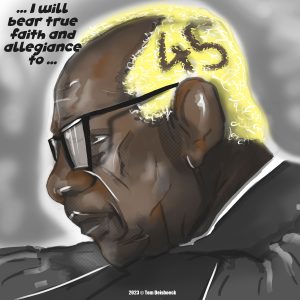
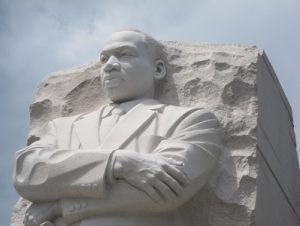
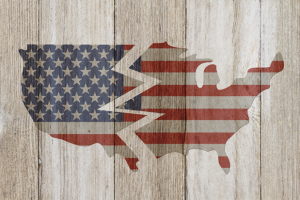


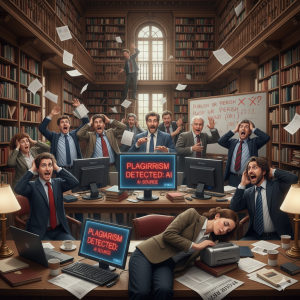
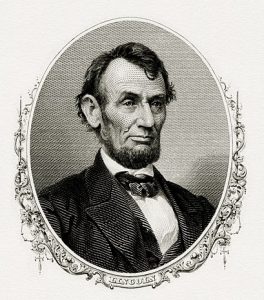


Be First to Comment